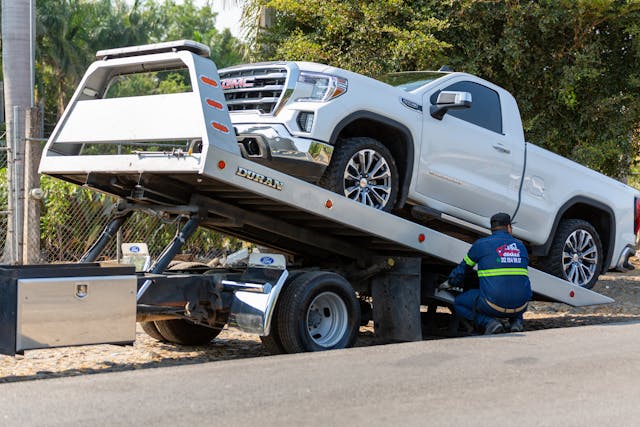In Texas, when a borrower defaults on a loan agreement, creditors have the legal right to reclaim possession of the property tied to the loan, such as a vehicle. This process is known as repossession and is a common practice across the United States. However, there are stringent laws that govern this process to ensure fair treatment for all parties involved.
Illegal repossession in Texas occurs when a creditor violates state laws concerning the recovery of property. Creditors must follow a set of rules that dictate how and when they can repossess a vehicle without breaching the peace.
Understanding Repossession in Texas
In Texas, repossession is a legal procedure that lenders use to recover property when a borrower defaults on their loan.
The Repossession Process
Repossession in Texas usually follows these specific steps:
- Notice of Default: Lenders often send a notice of default to the borrower..
- Peaceable Repossession: Lenders or their agents must repossess the property without “breaching the peace,” which means they cannot use physical force or threats.
- Post-Repossession Requirements: After repossession, the lender must provide the borrower with a written notice of their rights.
Consumer Rights and Protections
Consumers in Texas have several rights and protections in the event of a vehicle repossession:
- Right to Redeem: Before the sale of the repossessed vehicle, the borrower has the right to redeem the vehicle by paying the entire loan balance and any reasonable repossession fees.
- Notification Rights: Consumers must receive notice of the sale, including the time and place of a public auction or the date after which a private sale may occur.
- Deficiency Balance: If the sale of the vehicle does not cover the borrower’s debt, the lender can seek a deficiency judgment, but this amount must be fair and reflective of the vehicle’s value.
- Unlawful Practices: If the lender repossesses the vehicle unlawfully, the borrower may be entitled to compensation or recovery of the vehicle.
Taking Action Against Illegal Repossession
If your vehicle has been repossessed in Texas and you believe the repossession was unlawful, there are specific steps you can take to contest it. It’s important to act promptly and understand your legal rights in this situation.
Steps to Contest Illegal Repossession
To challenge an illegal repossession in Texas, follow this structured approach:
- Document Everything: Keep detailed records of all communication and notices received from the lender and the repossession agency.
- Review the Contract: Closely examine the terms of your loan agreement to ensure that a breach has occurred.
- Texas Peace of Mind: Confirm that Texas repossession laws, such as providing proper notice and not breaching the peace, were followed.
- File a Complaint: If laws were broken, file a complaint with the Texas Office of Consumer Credit Commissioner or the local police department.
By following these steps, borrowers can better position themselves to contest an illegal repossession.
Seeking Legal Counsel
Consulting with an attorney specialized in consumer rights or repossession law can be critically helpful:
- Expertise: A lawyer can help you understanding whether the repossession was illegal under Texas law.
- Representation: Legal counsel can communicate on your behalf, handle negotiations with lenders, and, if necessary, represent you in court.
It is advisable for individuals facing illegal repossession in Texas to seek qualified legal counsel to protect their rights and pursue possible remedies.







